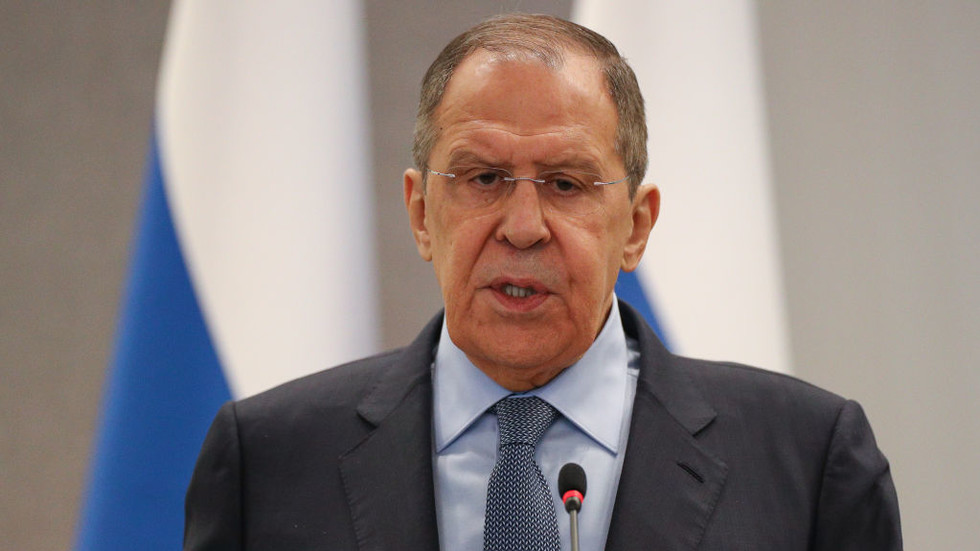Unearthing Parallels: Lavrov’s Stark Warning on ‘America First’
In a recent statement that reverberated across diplomatic circles, Russian Foreign Minister Sergey Lavrov made a bold comparison between the ‘America First’ doctrine and the nationalist rhetoric of Nazi Germany. This provocative assertion invites a closer examination of the implications of such ideologies on contemporary global politics. As the world grapples with increasing nationalism and isolationism, Lavrov’s warning sheds light on the potential dangers of prioritizing national interests at the expense of global cooperation and understanding.
Understanding the ‘America First’ Doctrine
The ‘America First’ doctrine emerged prominently during Donald Trump’s presidency, emphasizing the prioritization of American interests in foreign policy. This approach often translated into withdrawal from international agreements, trade wars, and a general skepticism towards multilateral institutions. While it resonated with many Americans who felt left behind by globalization, it also raised alarms among allies and adversaries alike.
- Economic Isolationism: The doctrine led to tariffs and trade barriers that disrupted decades of economic alliances.
- Withdrawal from Agreements: The U.S. pulled out of significant treaties, including the Paris Agreement and the Iran Nuclear Deal.
- Nationalism and Populism: The doctrine fueled a rise in nationalist sentiments both domestically and abroad.
Lavrov’s comparison to Nazi Germany is striking, as he indicates that such a focus on national superiority can lead to exclusionary and aggressive policies. This perspective is not without merit, given the historical context of how similar ideologies have manifested in the past. The rhetoric of ‘America First’ has parallels with the nationalist fervor that characterized early 20th-century Europe.
The Historical Echoes of Nationalism
Nazi Germany’s ascent was marked by a dangerous cocktail of nationalism, economic despair, and a quest for racial purity. Adolf Hitler’s regime propagated the idea that the Aryan race was superior, which justified aggressive expansionism and the subjugation of other nations. Lavrov’s warning suggests that the ‘America First’ mentality could similarly foster division, discrimination, and conflict.
Key Comparisons between ‘America First’ and Nazi Nationalism
- Exclusivity: Both ideologies prioritize a singular national identity, often at the expense of marginalized groups.
- Militarization: The aggressive posture towards foreign nations can lead to military confrontations, similar to the expansionist policies of Nazi Germany.
- Rhetoric of Victimhood: The narrative that a nation is under threat from outsiders can stoke xenophobia and justify repressive domestic policies.
The chilling echoes of history remind us that unchecked nationalism can lead to dire consequences. Lavrov’s assertion serves as a cautionary tale, urging global leaders to reflect on the trajectories of their policies and the potential ramifications of prioritizing national interests above all else.
Current Global Political Landscape
The contemporary political landscape is rife with examples of rising nationalism and populism. From Brexit in the United Kingdom to the resurgence of right-wing parties across Europe, the ‘America First’ doctrine has found resonance in various forms worldwide. Leaders who champion national sovereignty often do so by invoking fears of immigration, trade imbalances, and external threats.
Implications of Rising Nationalism
As nations retreat into their shells, the implications for global cooperation are significant. The notion of ‘America First’ can lead to:
- Decreased Multilateralism: Nations may become less willing to collaborate on global challenges like climate change, health crises, and terrorism.
- Increased Tensions: Economic protectionism and nationalist policies can lead to trade wars and geopolitical conflicts.
- Human Rights Concerns: Nationalism can justify oppressive measures against minorities and immigrants, undermining human rights frameworks.
Lavrov’s warning serves as a reminder of the historical consequences of similar ideologies. The international community must navigate these turbulent waters with caution, fostering dialogue and cooperation rather than division.
Lessons from History: A Call for Reflection
Reflecting on Lavrov’s statement allows us to draw lessons from history. The rise of Nazism was not an isolated event but a culmination of various societal factors, including economic distress, political instability, and the allure of simplistic solutions to complex problems. Today, as we face challenges such as climate change, pandemics, and geopolitical strife, the importance of international collaboration cannot be overstated.
Promoting Global Cooperation
To counteract the trends of isolationism and nationalism, it is essential to promote global cooperation and understanding. Here are some strategies to consider:
- Strengthening Multilateral Institutions: Reinforcing organizations like the United Nations and World Trade Organization can help manage global issues collectively.
- Encouraging Dialogue: Fostering open communication between nations can reduce misunderstandings and build trust.
- Education and Awareness: Raising awareness about the dangers of nationalism and the benefits of diversity can help counteract exclusionary narratives.
As we navigate these complex issues, it is crucial to remember the lessons of history. Lavrov’s stark warning is not just a critique of American policy but a call to action for all nations to reflect on their paths and prioritize cooperation over division.
Conclusion: A Path Forward
In conclusion, Sergey Lavrov’s comparison of the ‘America First’ doctrine to the nationalist rhetoric of Nazi Germany is a provocative reminder of the potential dangers of extreme nationalism. As we witness a resurgence of such ideologies globally, it is imperative to learn from history and strive for a more cooperative and inclusive world. By fostering dialogue, reinforcing international institutions, and promoting understanding, we can work towards a future that prioritizes shared interests over divisive nationalistic agendas.
In these challenging times, the call for unity and cooperation has never been more critical. As nations, let us heed the warning from history and work together towards a more peaceful and prosperous world.
See more BBC Express News

